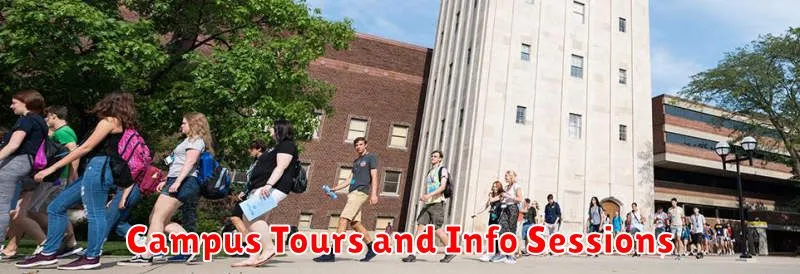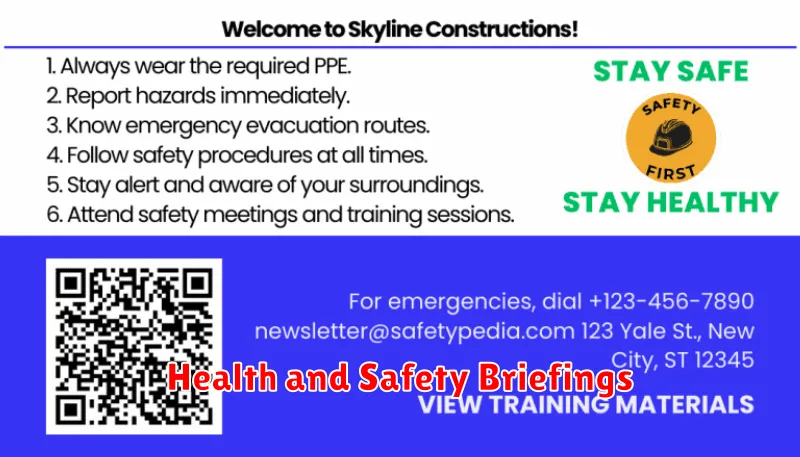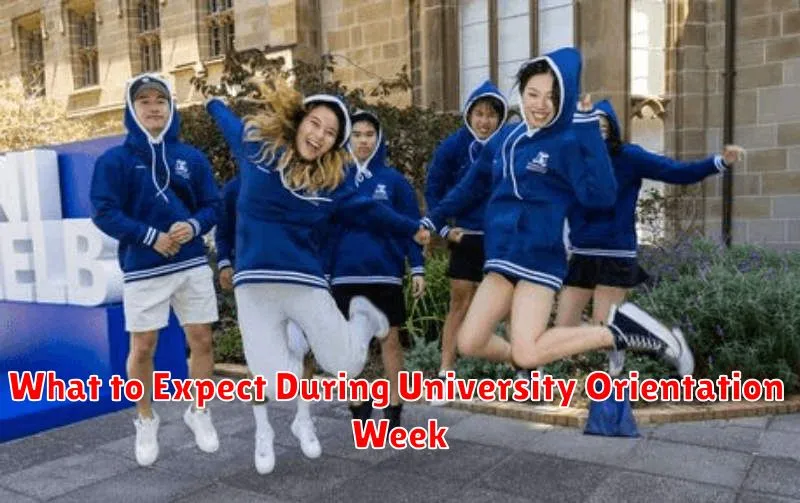University orientation week, also known as welcome week or freshers’ week, marks the exciting transition from high school to university life. It’s a crucial period packed with essential activities designed to acclimate new students to their academic environment, introduce them to campus resources, and facilitate social connections. If you’re about to embark on this journey, understanding what to expect during orientation week can significantly ease any anxieties and allow you to maximize this important time. From academic advising sessions to social events, orientation provides a comprehensive introduction to all aspects of university life, preparing you for a successful and fulfilling academic experience.
This guide provides a comprehensive overview of what you can expect during university orientation week. We’ll cover key events like academic advising, campus tours, and student organization fairs. We’ll also discuss the importance of attending these events and offer tips for making the most of your orientation experience. Understanding what lies ahead will empower you to confidently navigate this pivotal week and embark on your university journey well-prepared. By attending orientation, you’ll not only familiarize yourself with the university’s resources and academic expectations, but you’ll also have the opportunity to forge lasting connections with your peers and begin building your university support network.
Why Orientation Week Matters
Orientation Week, often held before the official start of classes, is a crucial period for new university students. It provides a structured introduction to university life, helping students transition smoothly into this new chapter.
Academic Preparation: Orientation often includes sessions designed to familiarize students with academic expectations, resources, and support systems. This might involve meetings with academic advisors, introductions to library resources, and workshops on study skills.
Social Integration: A key element of Orientation Week is fostering a sense of community. It’s a prime opportunity to meet fellow students, form connections, and begin building your support network. Activities and social events facilitate interaction and help combat feelings of isolation.
Campus Familiarization: Navigating a new campus can be daunting. Orientation Week provides guided tours and opportunities to explore key locations such as classrooms, libraries, student centers, and administrative offices. This reduces anxiety and promotes independence.
Meeting New Friends and Classmates
Orientation week is a prime opportunity to build your university network. You’ll be surrounded by students who are also new to the campus environment. This shared experience creates a natural foundation for forming friendships.
Take the initiative to introduce yourself. Participate in icebreaker activities and social events organized by the university. Don’t be afraid to strike up conversations with the people you meet in your orientation sessions, workshops, and even in dining halls.
Joining student clubs and organizations is another effective way to connect with like-minded individuals. Attend the involvement fair typically held during orientation week to explore the diverse range of clubs available.
Remember that everyone is in the same boat, feeling a mix of excitement and nervousness. By being open and approachable, you’ll greatly increase your chances of forming lasting friendships and establishing a supportive network from the start.
Campus Tours and Info Sessions

Campus tours and information sessions are a cornerstone of orientation week. These activities provide you with a comprehensive overview of the university’s facilities and resources. Tours typically showcase key locations such as academic buildings, libraries, student centers, and athletic facilities.
Information sessions delve into important topics, covering academics, student life, financial aid, and support services. These sessions are often led by faculty, staff, or current students, providing you with valuable insights and the opportunity to ask questions.
Attendance at these events is highly encouraged. They offer an invaluable opportunity to familiarize yourself with the campus layout, learn about essential resources, and connect with key personnel.
Typical Campus Tour Stops:
- Main Library
- Primary Academic Buildings
- Student Union
- Dining Halls
- Recreational Facilities
Academic Registration Help
Orientation week typically includes dedicated sessions to assist with academic registration. This is a crucial step in your university journey, ensuring you are enrolled in the correct courses for your program.
Experienced advisors will be available to guide you through the process, answer your questions, and address any concerns. They can help you understand:
- Course selection procedures
- Prerequisites and core requirements
- Credit hours and course load
- Online registration systems and portals
Don’t hesitate to ask questions. This is the best time to clarify any doubts and ensure a smooth start to your academic year. Bring any necessary documents, such as your acceptance letter and transcripts (if required). Be prepared to make decisions about your courses, as registration often occurs during or immediately following orientation.
Student Clubs and Social Events
Orientation week is the perfect time to explore the diverse range of student clubs and organizations available on campus. From academic and professional societies to recreational and special interest groups, there’s something for everyone. Attending club fairs and introductory sessions provides an excellent opportunity to meet current members, learn about club activities, and potentially find your niche.
In addition to club activities, orientation week usually includes a variety of social events designed to help students connect with their peers and build a sense of community. These can range from welcome barbecues and campus tours to movie nights and game tournaments. Participating in these social events is a great way to make new friends, familiarize yourself with the campus environment, and ease the transition into university life.
Health and Safety Briefings

Orientation week typically includes mandatory health and safety briefings. These sessions provide crucial information to ensure your well-being on campus.
Topics covered often include:
- Emergency procedures: Learn what to do in case of fire, natural disaster, or other emergencies.
- Campus security: Information about campus security services, including contact information and safety escorts.
- Health services: Learn about accessing on-campus medical and mental health support.
- Fire safety: Important fire safety guidelines and procedures for residence halls and campus buildings.
Pay close attention during these briefings and ask questions if anything is unclear. This information is vital for your safety and well-being throughout your university experience.
How to Make the Most of It
Orientation week can feel overwhelming, but it’s a valuable opportunity to acclimate to university life. To maximize your experience, active participation is key. Attend all scheduled events, even those that seem optional. These sessions provide crucial information about academics, resources, and campus life.
Don’t be afraid to ask questions. Orientation staff and student leaders are there to help you. Clarity early on can save you stress later. Connect with your peers. Orientation is the perfect time to build friendships and establish a support network. Engage in conversations, participate in icebreakers, and exchange contact information.
Explore the campus. Familiarize yourself with key locations like classrooms, libraries, and student service centers. This will reduce anxiety and boost your confidence navigating the campus environment. Lastly, take initiative. Sign up for clubs, organizations, and activities that align with your interests. Getting involved enriches your university experience and helps you find your place within the campus community.

